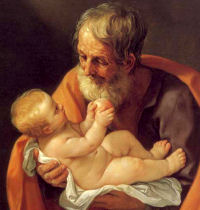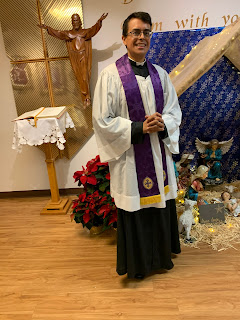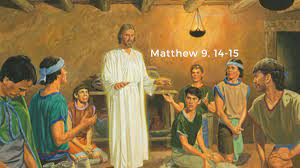Scripture readings for this reflection can be found at Friday of the Fourth Week of Easter | USCCB
In our gospel for
today, our Lord is asking us to place all our lives into His loving hands. He’s
there for us in all our cares and concerns to bring us comfort and peace. He’s
there for us when things are going well and he’s there for us when things seem
to be out of control in our lives. We just need to trust that He’s present to
us in all our needs.
Jesus is asking us
to have faith in God the Father and in Him no matter what the circumstances may
be in our lives. Our lives at times can be very challenging. But trust in God’s
presence in every situation in our lives is what we are called to do as
Christians.
As we journey
through our lives we need to know and trust that Christ is with us no matter
what. The Lord is promising us that at the end of our lives He will have a special
place for us. The Lord promises that where He is, we also may be. This is a
promise we can trust.
When Jesus says,
“Where I am going you know the way,” Thomas, always ready with his questions,
asks, “Master, we do not know where you are going; how can we know the way?”
Thanks to Doubting Thomas, we hear Jesus tell us, “I am the way and the truth and the life. No one comes to the Father except through me.”
These words are
most comforting for us as followers of Jesus Christ. There are many ways to
live out our lives in this crazy world. But we, as Catholic Christians, know
that the only true way to live is by following Jesus Christ: the Way, the
Truth, and the Life. As we live out our lives as followers of Jesus Christ, let
us always be prayerful people with Christ as the center of who we are and to
remain faithful followers of Him who died on Good Friday and rose for us on
Easter Sunday. Then when our time on earth is finished, Jesus will lead us to
the place prepared for us in heaven. As we live out each day of our lives, let
us pray, “Jesus, I trust in you.”


















